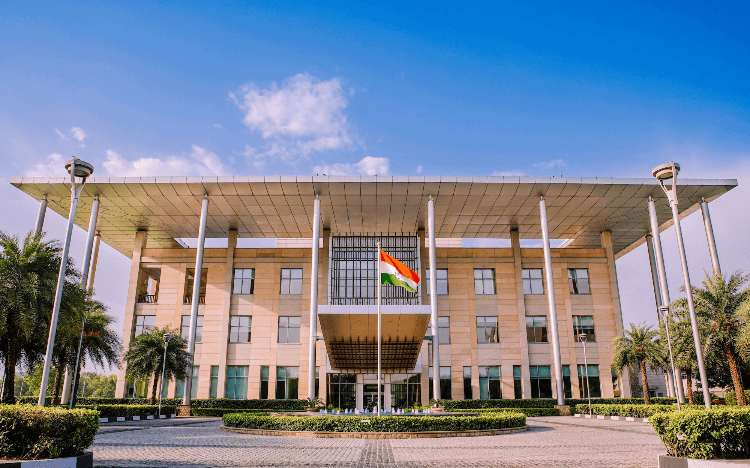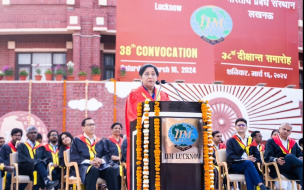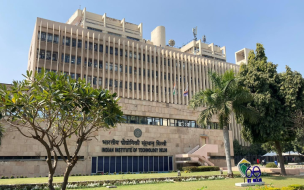There are a variety of factors to consider when it comes to the question of PGDM vs MBA. The MBA is a postgraduate degree spanning two years, designed to impart the necessary skills and knowledge for effective business management.
On the other hand, the PGDM (Post Graduate Diploma in Management) is a two-year postgraduate diploma aimed at providing practical insights into business management.
PGDM programs tend to have a stronger industry focus, while MBA programs lean more towards a theoretical approach. So how can you make the right choice?
PGDM vs MBA: What's the difference?
The difference between PGDM and MBA degrees lies primarily in their nomenclature and the institutions offering them. However, there are several historical, regulatory, and practical reasons for these differences to consider:
1. Institutional autonomy
Many universities offer degrees—such as an MBA—which are regulated by statutory bodies like the University Grants Commission (UGC) in India.
On the other hand, autonomous institutes or business schools that aren't affiliated with a university often offer the PGDM. These institutes have more flexibility in designing their curriculum, which can be updated more frequently to align with industry trends.
2. Curriculum design
PGDM programs are often designed with a strong focus on practical industry relevance. They can adapt quickly to changing business landscapes and incorporate the latest business trends. MBA programs, due to their affiliation with universities, might have a more structured and theoretical curriculum that could take longer to update.
3. Industry orientation
PGDM programs are generally more industry-oriented, often involving guest lectures, internships, and projects in collaboration with companies. This emphasis on practical exposure helps students bridge the gap between academia and real-world business challenges.
MBA programs typically offer similar opportunities but often place more emphasis on academic research and traditional classroom teaching.
4. Global recognition
The term 'MBA' is recognized globally due to its historical prominence, and it's often associated with traditional business education. PGDM, on the other hand, is less common around the world and so might be more regionally recognized and understood, especially in countries where it's a common designation.
5. Regulatory factors
In some regions, there are regulatory restrictions on using the term 'MBA' unless the program is affiliated with a recognized university. This can result in autonomous institutes offering PGDM to avoid any legal or regulatory challenges.
6. Brand differentiation
Some institutions use the term PGDM to differentiate themselves from traditional MBA programs. It signals that their program might have a more contemporary curriculum, practical exposure, and closer ties with industry.
READ: Financial Times MBA Ranking | Top Colleges For An MBA In India
©IIM Indore/Facebook
PGDM vs MBA: Admission requirements
Candidates aiming for MBA or PGDM programs should be aware of the following eligibility criteria:
Eligibility criteria for MBA:
To secure admission in MBA programs, candidates need to have completed a bachelor's degree with at least 50% aggregate marks in any field. It is essential to qualify for either a national-level or university-level entrance exam to gain admission to well-known MBA colleges in India.
Eligibility criteria for PGDM:
Candidates aspiring for PGDM programs should possess a bachelor's degree from a recognized university with a minimum of 50% marks in any discipline. Like MBAs, PGDM institutes also grant admission based on entrance exam scores.
What will I learn on an MBA in India?
An MBA program in India provides a well-rounded education encompassing multiple facets of business management and administration.
Its purpose is to furnish students with crucial knowledge, skills, and resources necessary to thrive in various business capacities. While the precise content and focus of the curriculum may vary between institutions, the following subjects are typically included in the syllabus of an Indian MBA program:
Core business subjects:
⇨ Finance
⇨ Marketing
⇨ Operations
⇨ Human Resources
⇨ Strategy
General management:
⇨ Leadership
⇨ Entrepreneurship
⇨ Business Ethics
Quantitative analysis:
⇨ Quantitative Methods
⇨ Business Analytics
Specializations:
Many MBA programs offer students the chance to specialize in specific areas, such as:
⇨ Finance
⇨ Marketing
⇨ Operations/Supply Chain
⇨ Human Resources
⇨ Information Technology
READ: Which Business School Has The Best ROI For MBA In India?
What will I learn on a PGDM in India?
A PGDM is a management program that is similar to an MBA but offered by autonomous institutions in India.
PGDM programs are designed to provide students with a comprehensive education in various aspects of business and management, preparing them for leadership roles in the corporate world.
The curriculum of a PGDM program can vary between institutions, but here are some common subjects and areas of learning that you can expect to encounter in a PGDM program:
Core business subjects:
⇨ Financial Accounting
⇨ Managerial Economics
⇨ Organizational Behavior
⇨ Marketing Management
⇨ Operations Management
⇨ Business Ethics and Corporate Social Responsibility
Specialized areas:
Depending on the program's focus and your chosen specialization, you might study subjects such as:
⇨ Finance: Corporate Finance, Investment Analysis, Risk Management
⇨ Marketing: Brand Management, Consumer Behavior, Digital Marketing
⇨ Operations: Supply Chain Management, Project Management
⇨ Human Resources: Talent Management, Performance Appraisal, Organizational Development
⇨ Information Technology: Business Analytics, E-commerce, IT Strategy
⇨ Entrepreneurship: Business Planning, Innovation, Start-up Management
Strategy and leadership:
⇨ Strategic Management
⇨ Leadership Skills Development
⇨ Change Management
⇨ Negotiation and Conflict Resolution
Quantitative analysis:
⇨ Statistics and Data Analysis
⇨ Quantitative Methods for Decision Making
Communication and soft skills:
⇨ Business Communication
⇨ Presentation Skills
⇨ Interpersonal and Team Management
Global business environment:
⇨ International Business
⇨ Cross-Cultural Management
Ethics and corporate governance:
⇨ Business Ethics
⇨ Corporate Governance
Business law and regulations:
⇨ Contract Law
⇨ Commercial Law
PGDM vs MBA: What are the top business schools?
PGDM vs MBA: Which is better to study?
PGDM programs are characterized by their industry-focused curriculum, emphasizing practical application, while MBAs tend to be more theoretical in nature.
Employers in India often prioritize candidates with PGDM qualifications because these programs provide valuable practical insights that align closely with real-world demands.
Globally, the MBA is a widely recognized and prestigious degree that can unlock a wide range of career options.
Examples of career outcomes:
Graduates from top PGDM institutions like IIM AXLRI, SPJIMR, and MDI often secure leadership positions in various industries such as consulting, FMCG, finance.
MBA graduates from prestigious universities like IIMs often find themselves in high-level managerial roles across a diverse range of sectors.
Both PGDM and MBA graduates might pursue launch startups, join an entrepreneurial venture, or join family businesses.
Next read: How To Prepare For An Interview To Business School In India









